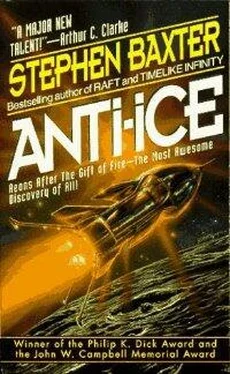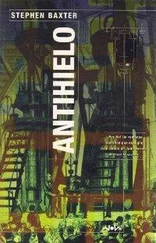At last, early on the 18th, we heard the bugles and drums which told us that the assault had started. We gave a ragged cheer—remember that this was my first taste of real action, Sir—and I poked my silly head out of my trench, the better to follow the action.
Through smoke and steam and across smashed-up ground I saw the French go in first. But the Russians were ready for them, and the fellows toppled as if scythed; those following tripped on the fallen, and soon all was confusion. I fear, Father, that some of those brave Gauls fell to misplaced Allied fire in all that turmoil.
At last the orders came for us to advance. Over the top we skirmishers went and on over the broken mud, yells burning our throats, our bayonets glinting before us. We made for the most formidable Russian redoubt, the Redan; our mission was to cover an assault force who carried ladders and woollen bags, the idea being to scale the Redan’s stone walls. I blasted my Minie before me, and for a few seconds the fire of battle coursed through my veins!
Unfortunately the Russians would not play the game.
The Czar’s men stayed in their fortifications and sent a most murderous hail of grape and musketry showering down over us. Quite how I survived those minutes I shall never know, Father; for all around me better fellows than I fell sprawling. At last my boot caught in the soft mud of a shell crater; I pitched forward and found myself lying at the bottom of the hole. Russian grape filled the air like a sheet inches above me, and so I lay flat in the mud, knowing that to rise at that point was to face certain death.
I hope you will believe that it was not cowardice that kept me down, Father; as I lay in that hole, the stink of blood and cordite in my nostrils, rage ate at my soul, and I promised myself that once I had the opportunity I would resume the assault and sell my life dear.
At length, with shot still sizzling around me, I clambered out of my shelter, raised my Minie and ran forward.
I was greeted by the most fantastic sight.
Siege ladders lay like pickup sticks about the plain; and men—and fragments of men—lay strewn among them, adorned with smoking shot and pieces of shell. Only one ladder, I saw, had by some miracle been raised against the redoubt’s brooding wall: its bearers lay crumpled in a muddy pile, arms and legs everywhere, at its base. And the Russian guns stared undaunted from the redoubt’s every embrasure.
The retreat sounded and, under a renewed hail of grape from our unwelcoming hosts, we limped back to our trenches.
And so ended my first experience of combat, Father; and that evening I lay sorely troubled. For how could the death of so many fine men be justified for such an absurd bungle?
The next week was a grim time. For hour after hour rough carts drew up among our tents and huts, and our poor injured lads were loaded aboard and hauled off for the jolting journey to the hospital three miles away at the coast.
Their cries and weeping were terrible to hear. And day and night, as if to mock our failure and frustration, the Russian artillery bellowed.
No less disturbing to us were the hints we received of ructions among our Commanding Officers. Around the clock the conferences went on, and more than once I saw a grand gentleman emerge from Lord Raglan’s tent and go stalking around the camp in high dudgeon, scarred cheeks blazing with anger, white gloves slapping against jostling scabbard. And several times we saw the engineer, Traveller, trotting across the camp site to Raglan’s tent bearing mysterious plans and other specifications; and so we knew that the deployment, at last, of this strange stuff anti-ice must be under consideration.
But of Lord Raglan himself we saw no sign. I imagined that gentleman, Father, his face drawn with care and sickness and his head full of memories of Waterloo and the Iron Duke, at the eye of a storm of disrespect and interrogation.
At last, on 27th June, our Captain called us together. His expression grim, he informed us that Lord Fitzroy Raglan had died the previous day, the 26th; that General Sir James Simpson had been appointed our new Commander-in-Chief; and that we should prepare ourselves for a fresh assault within twenty-four hours. This assault, said the Captain, would follow “a new artillery barrage of unprecedented ferocity.”
Then he stalked away from us, his back stiff, refusing to say any more.
We were never told the cause of Raglan’s death. Some say he died of disappointment, after that last, failed assault on the Russian redoubts; but I cannot believe it. For even a month earlier, when he visited our camp, Father, care and fatigue had seemed etched into that noble face. Now, God forbid that you should ever see a victim of the Cholera, Sir—I have seen too many—but if you do you will, I am sure, remark on the drained, troubled appearance of that unfortunate; and so I have no doubt of the cause of Raglan’s doom.
Men like Raglan do not die of broken hearts, I say.
That night we retired to our muddy billets. I did not sleep well, Father, but not through apprehension, or excitement, or even the constant shouting of the artillery; rather I felt sunk in depression, I have to report, following the deaths of so many good fellows—and now of Raglan himself—to such little effect. It seemed to me that night as if the English Army itself were dying, there on the plains of the Crimea.
We were roused at dawn. The bugles and drums were silent, but nevertheless we were told to draw up in drill formation and to prepare to advance.
And so I turned out, my fingers jammed into my cuffs to escape the gray cold of dawn, the webbing of my Minie chafing at my unshaven neck. The barrage from the artillery behind us went on unabated; as did, I noted, the replies from the redoubts of Sebastopol, and a sick apprehension gripped me. For if the Russian guns had not been subdued, our assault would be another suicidal charge. Once again, Father, I beg that you do not think me a coward; but I had—and have—no desire to sell my life without profit, and such seemed the prospect before me at that moment.
Then the guns behind us grew quiet, all of a sudden; and soon, as if in response, those of the Russians also lapsed into calmness. A silence fell over our camp, and it combined with the misty dawn light into a strangeness that made me wrap my arms around myself, shivering. The only motion was that of the Little Moon which rose above us, a dazzling beacon of light, setting off on another of its half-hour jaunts across the sky. I looked around, seeking reassurance in the lines of drawn, uncertain faces all around me; but comfort there was none. It was as if we had all, infantrymen, Officers and horses, been transported to some distant, gray star.
I held my breath.
Then, from the Allied emplacements behind me, I heard the speaking of a single artillery piece.
I was later given an account by a friendly Artilleryman of the few moments which had preceded that single shot. This gunner had watched as the engineer Josiah Traveller approached a particular emplacement, his stovepipe hat screwed tightly down around his ears. The fellow wore thick leather gloves which, according to my reporter, added up to a rather comical effect; and at arms’ length he carried a large metal cask that shone with frost, as if it were as cold as death. Following Traveller came Sir James Simpson himself and several of his staff, their faces grim, their epaulettes and decorations gleaming. At the muzzle of the gun the engineer placed his cask on the ground and, by loosening clasps, cracked it open. Its central cavity was quite small, my friend reported, so that the walls of the cask were some inches thick and might, he speculated, have contained some substance which kept the temperature of the cask unnaturally low.
Читать дальше












